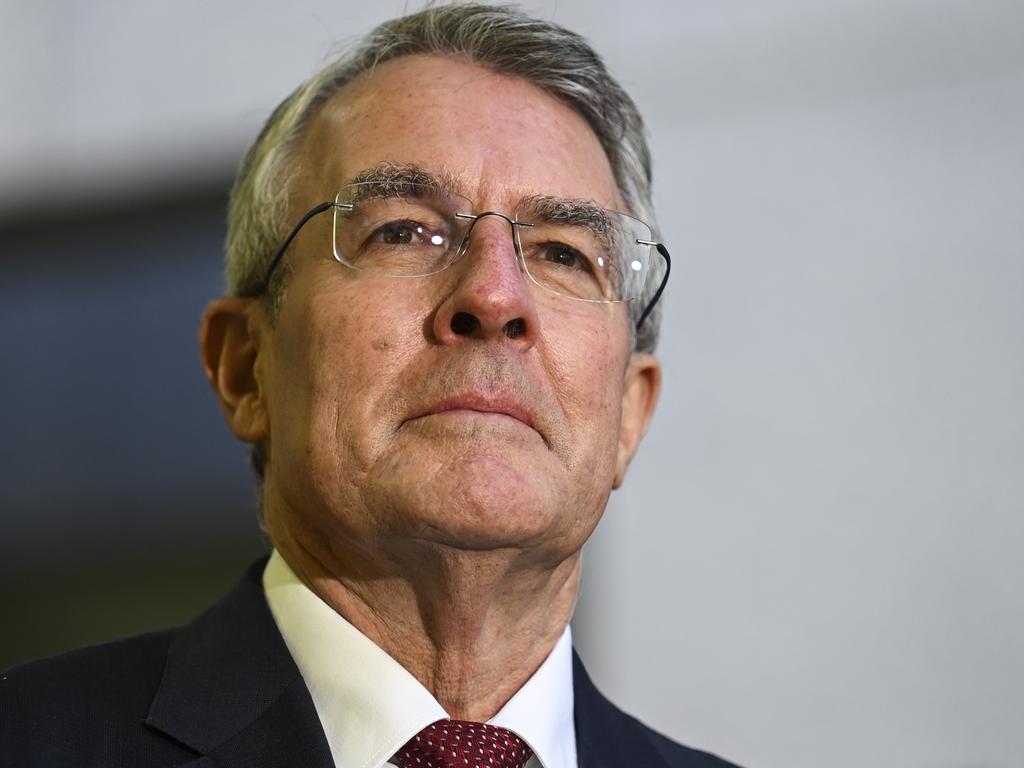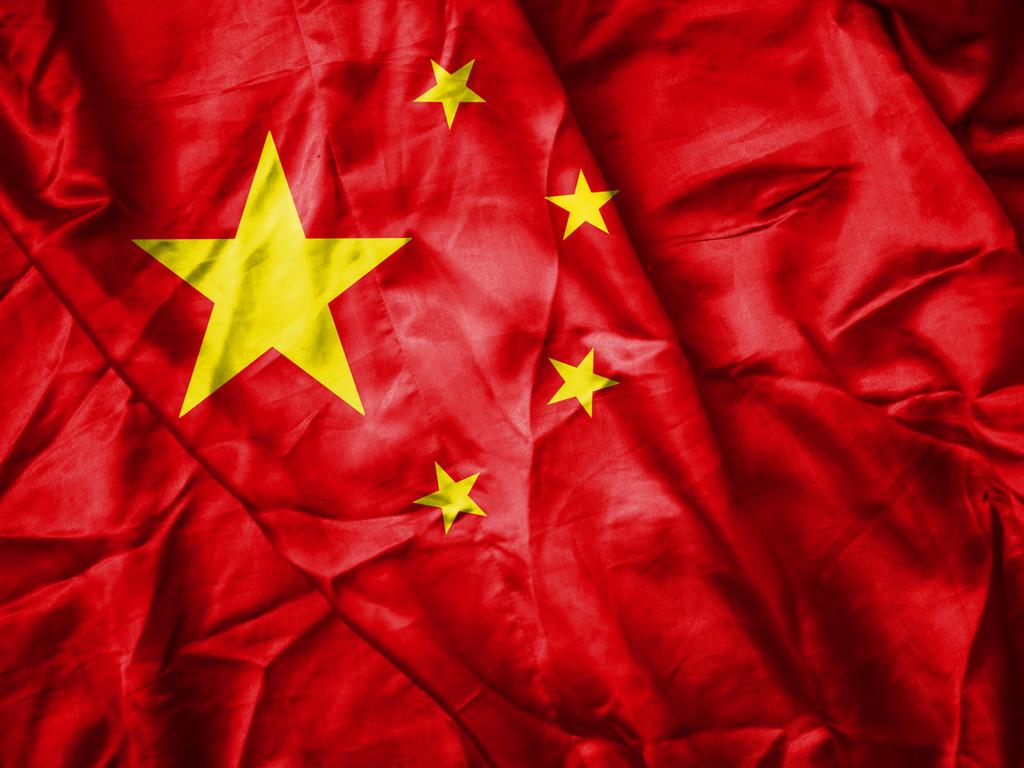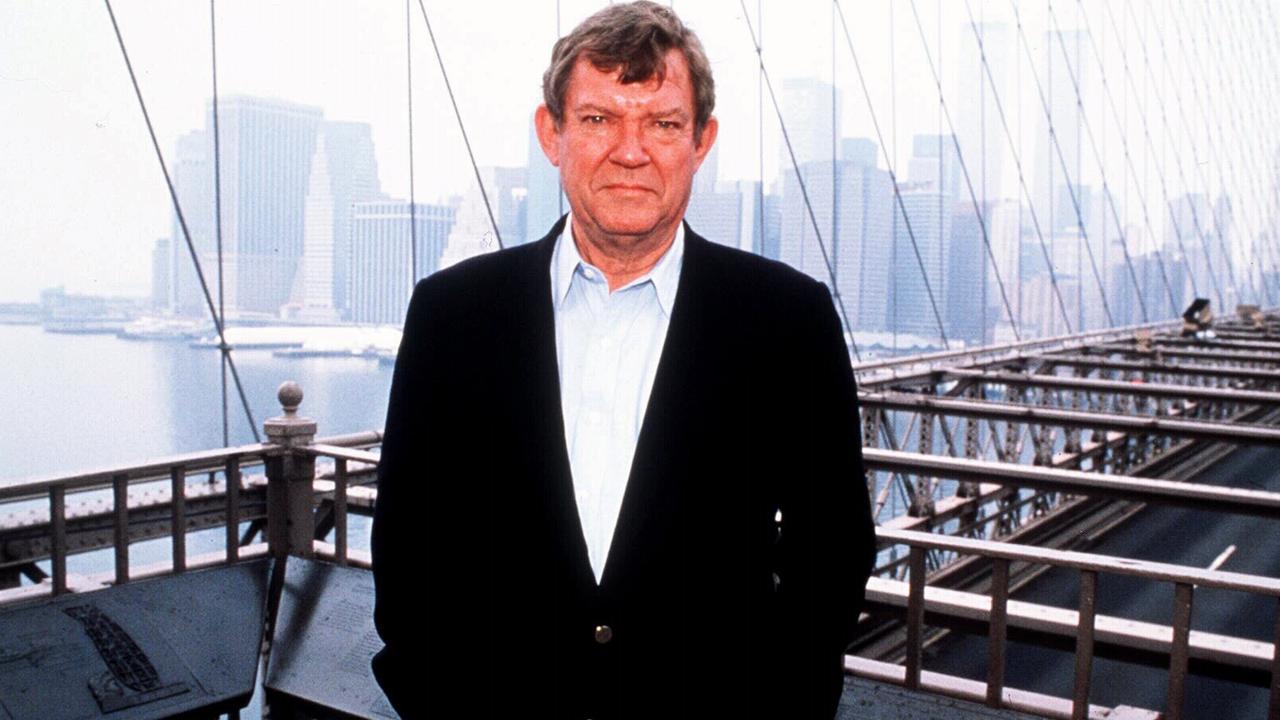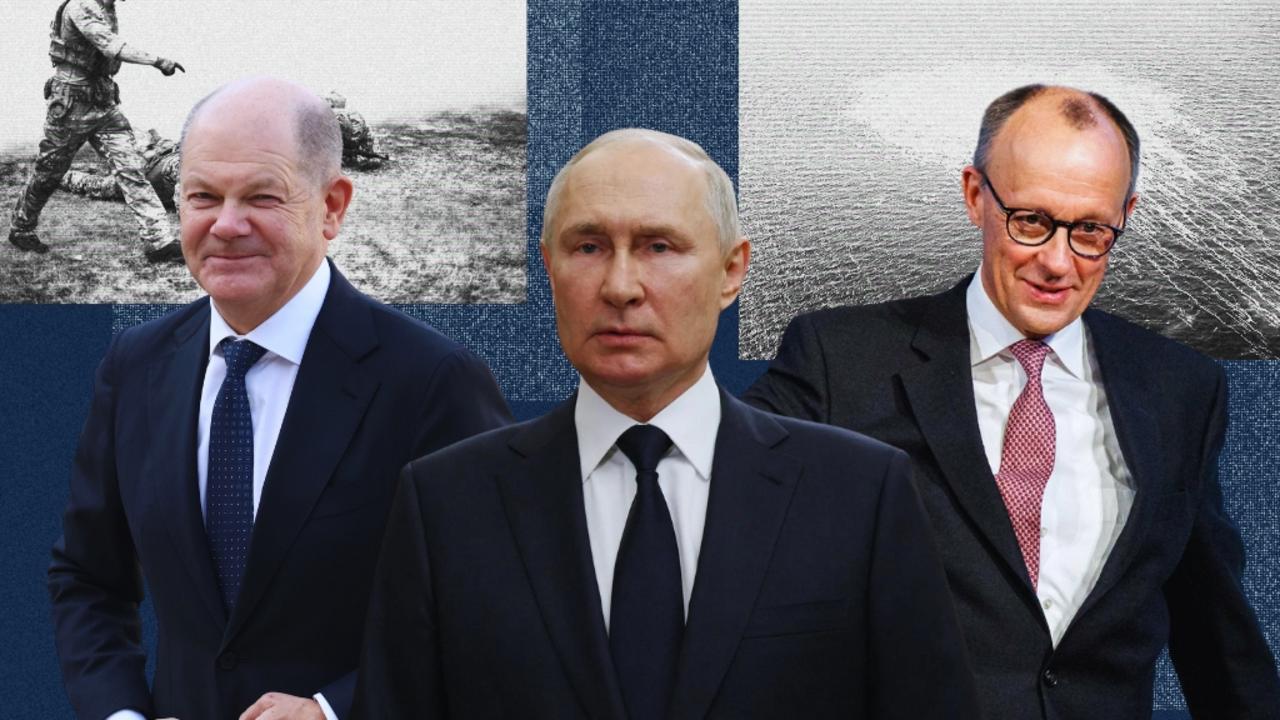Beware Chinese wolves in sheep’s clothing

A few years into President Xi’s rule, a Rambo-style action movie broke Chinese box-office records. It was Wolf Warrior 2 and its promotional posters promised, in the words of the hero (a loose cannon, ex-Chinese special forces guy, impressive abs): “Whoever attacks China will be killed, no matter how far away the target is.” No wonder the diplomats sent out to sell China’s muscular new foreign policy should come to be dubbed wolf warriors, blurting out Beijing’s discontents and verbally head-butting any government with the nerve to speak in favour of Taiwan’s right to independence or against the persecution of Uighur Muslims. Xi had injected the state machine with mood-altering steroids.
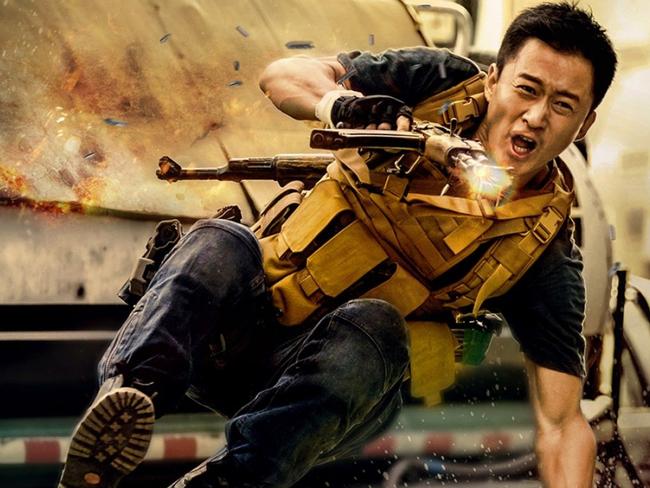
This was a departure from the hide-and-bide diplomacy, the co-operative rhetoric of leaders such as Deng Xiaoping and Hu Jintao. The old-school diplomat Wu Jianmin seemed to nail the problem in his memoirs: insecurity. “If someone says we’re good, then we’re delighted and get all puffed up. If someone says a couple of bad things about us, we’re incredibly sad or angry. It expresses a lack of confidence.”
Now Xi seems to be calling his wolves to order. The new mission: to convince the world that his China is so sure of itself it can go out into the world and broker peace. There have been moments in the past when Chinese diplomats made nice. To lift the sanctions imposed after the Tiananmen Square massacre in 1989 or to secure the Olympics demanded a charm offensive. For the most part, though, the Chinese diplomatic machine ticked along, playing a supportive role in the theft of industrial secrets and providing expert policy advice to the communist leadership. It was a ministry without great ambition.
Xi wanted diplomats to do more: to ensure China was shown the respect due to a power in the fast lane. Diplomats were encouraged to use social media, to fight Beijing’s corner when a Wuhan laboratory was blamed for the coronavirus, to put the law and order case for the crushing of Hong Kong. Gui Congyou, then the ambassador to Sweden, publicly deplored the award of the Kurt Tucholsky prize to a critic of Beijing. “We treat our friends with fine wine,” he sneered, “but for our enemies we’ve got shotguns.” The Swedes were furious. Lu Shaye, the ambassador to France, first showed his fangs as envoy to Canada after the arrest of Huawei’s chief financial officer. He accused Canada of “white supremacy”.
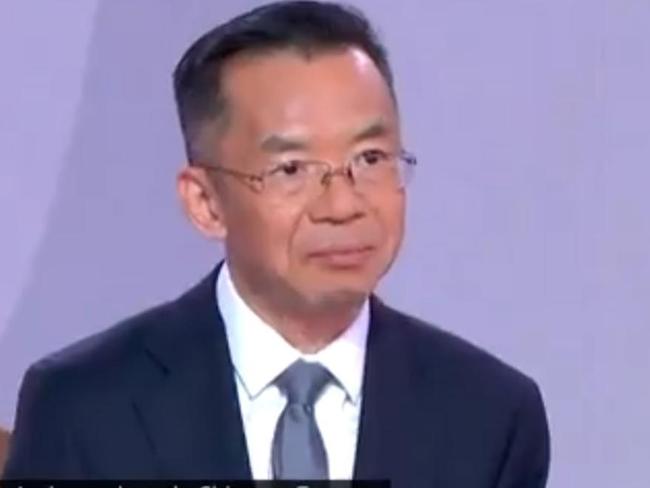
In France he claimed that China had beaten Covid while French nursing-home staff were starving patients to death. He promised that the communists would re-educate Taiwan once it was occupied. And he has publicly questioned the sovereignty of all post-Soviet states.
It has been a rough-and-tumble form of statecraft, reminiscent of Mao’s days ("fight, fight, talk, talk,” was his motto during the Cultural Revolution). Last October a Hong Kong protester was dragged to the grounds of the Chinese consulate in Manchester and knocked about by diplomats and security guards.
Some of these wolf warriors are being retired or shifted out of public view. The sharp-tongued foreign ministry spokesman Zhao Lijian, once the poster child of wolf warriors, has been shifted to the ministry’s department for boundaries and oceans.
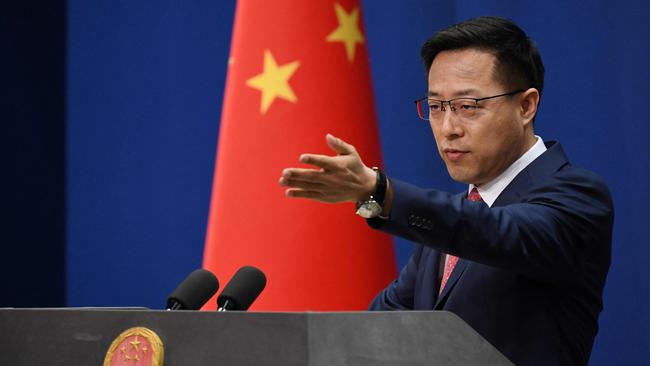
Evidently Xi has understood that wolf warriors are not always effective. Aggressive diplomacy is driving away potential allies in the Pacific. China’s ambassador in Manila seemed to threaten the safety of Filipinos working in Taiwan. Result: despite China being its biggest trading partner, Manila is backing deeper defence links with the United States. China is losing friends in Vietnam too. Across the Indo-Pacific region it is seeing signs of western-led encirclement - which it has unwittingly encouraged by ugly, cack-handed diplomacy.
Xi’s response is not to abandon his wolves but to clothe them in sheepskin coats. There is enough expertise in the foreign ministry to act as a broker in the Middle East. It was Chinese mediation that put Saudi Arabia and Iran, both oil suppliers to China, on talking terms. How long that reconciliation will last is anyone’s guess but in the meantime Beijing has succeeded in digging its sharp elbows into the side of the US. Now it is putting itself forward as a mediator between Israel and the Palestinians – a move unlikely to be taken seriously. More promising is China’s involvement in the rehabilitation of the Syrian dictator Bashar al-Assad. It could position itself as a leading rebuilder of Syria’s shattered infrastructure.
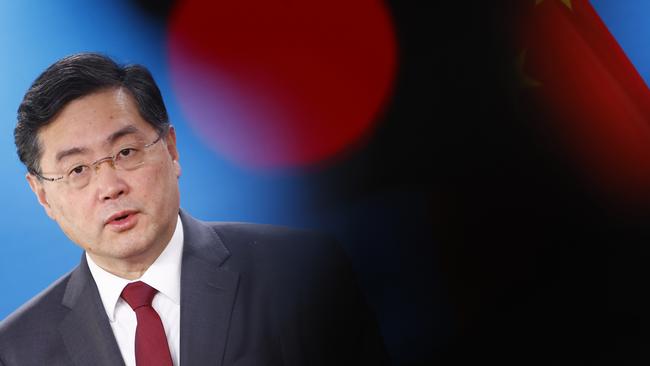
As for Ukraine, China has dreamt up a 12-point peace plan, although given its supposedly limitless friendship with Moscow it is difficult to see how it can pose as an honest broker. Even if it is a short-lived charade, it looks as if Xi is responsive to western pressure to put the squeeze on President Putin.
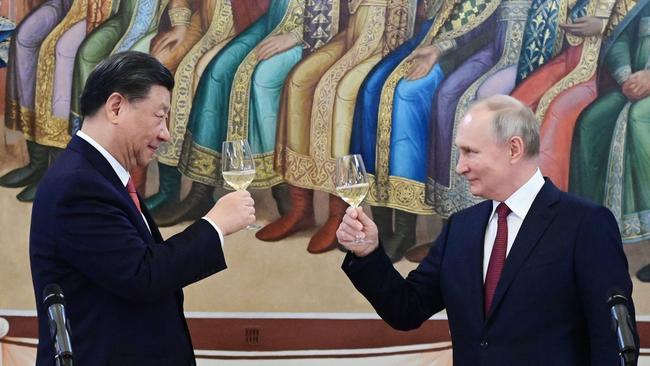
The ultimate success of these efforts is less important to China than the performance. Despite all the sunny predictions of a Chinese century, its ambition to overtake the US is flagging. It still has enormous heft but looks unlikely to soar past America in the near future: productivity is down, the working-age population is set to decline by a quarter within about 25 years, foreign companies are diversifying away from China. Only the military is growing at breakneck speed and that could unsettle the world order.
Peace-brokering is a useful diversionary tactic rather than a wholesale reinvention of the aggressively nationalist Xi. Those wolves? They’re still on the prowl.
The Times


